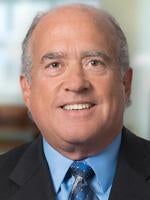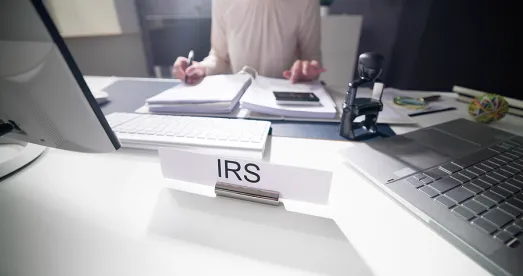Following our initial reaction to the Internal Revenue Service's strategic operating plan to spend $80B in funding allocated from the Inflation Reduction Act, Polsinelli’s Tax attorneys continue to monitor the IRS’ compliance guidelines. Last week the IRS announced that it would be starting a “sweeping, historic effort to restore fairness in tax compliance by shifting more attention onto high-income earners, partnerships, large corporations and promoters abusing the nation's tax laws.”
New IRS Commissioner, Danny Werfel, has committed to holding the Country’s wealthiest taxpayers accountable to pay the full amount of what they owe. Using funding increases from the Inflation Reduction Act, the IRS will focus its enforcement on “[the] wealthy, partnerships and other high earners that have seen sharp drops in audit rates for these taxpayer segments during the past decade.” This announcement comes days after the Treasury Inspector General for Tax Administration (TIGTA) released a report concluding that the IRS’ must update its outdated definition of high-income individuals and procure better training programs in order to successfully carry out its strategy to increase audit rates of high-wealth taxpayers.
According to the announcement, the IRS intends to use artificial intelligence and improved technology to “help IRS compliance teams better detect tax cheating, identify emerging compliance threats and improve case selection tools to avoid burdening taxpayers with needless ‘no-change’ audits.”
In particular, the IRS stated it intends to increase its collection efforts on taxpayers with total positive income above $1 Million who have more than $250,000 in tax debt. The IRS claims to have identified about 1,600 high-income taxpayers in this category to target.
Additionally, the IRS plans to expand its Large Partnership Compliance program by utilizing artificial intelligence and applying “cutting-edge machine learning technology to identify potential compliance risks in the areas of partnership tax.” According to the announcement, the IRS has already identified 75 of the largest partnerships in the U.S. to examine. These partnerships are expected to be notified of the examinations by September 30, 2023. The IRS has also identified ongoing discrepancies on balance sheets involving partnerships with assets over $10 million, “which is an indicator of potential non-compliance.” The IRS plans to send a compliance letter to 500 partnerships requesting information regarding the discrepancies.
The IRS’ pronouncement also reiterated several “priority areas” to target. In addition to the well-discussed compliance efforts to prevent abusive micro-captive insurance arrangements and syndicated conservation easements, the IRS intends to expand its audit focus on digital assets, FBAR violations and labor brokers. While the former has received various media attention, “labor brokers” appear to be a new area in which the IRS is focusing its attention. The pronouncement states that the IRS will focus on a “scheme” involving “labor brokers.” Specifically, “[t]he IRS has seen instances where construction contractors are making Form 1099-MISC/1099-NEC payments to an apparent subcontractor, but the subcontractor is a "shell" company that has no legitimate business relationship with the contractor. Monies paid to shell companies are exchanged at Money Service Businesses or flowed through accounts in the name of the shell company and returned to the original contractor. The IRS will be expanding attention in this area with both civil audits and criminal investigations.”
Taxpayers with federal tax compliance issues, especially high net worth individuals and multi-tiered partnerships, should act quickly and contact experienced tax counsel to explore their options for reporting non-compliance prior to receiving a notice of audit from the IRS. Several programs are available to taxpayers who voluntarily disclose their non-compliance to the IRS prior to being notified. With the use of artificial intelligence, it is possible that the IRS will be able to more quickly identify taxpayers who have not been compliant. Polsinelli’s Tax attorneys have extensive experience representing individuals and entities before the IRS in voluntary disclosure programs, collection actions and in all stages of litigation.






 />i
/>i

